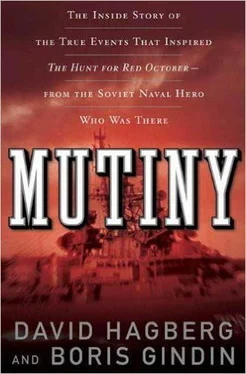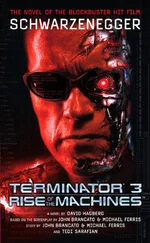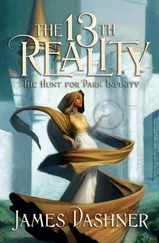“We must leave now,” he tells them. “Take your posts.”
“What about the engines?” one of the sailors asks.
At that moment the ship’s phone buzzes. Sablin yanks it from its bracket. “Bridge!”
“The engines are ready for full power,” one of the engine room crew reports.
“Very well; stand by to answer bells,” Sablin gives the same order he’s heard Potulniy give before. He hangs up and turns to his bridge crew. “The engines are ready. We have to get out of here now.”
“Where?” the helmsman asks.
The other two are hurriedly powering up the electronic equipment, including the vital navigation radar they’ll need to get under way.
“Downriver, out to the gulf.”
“Yes, sir,” the young crewman replies. “But first we’ll need someone on the bow to take in our mooring line and untie it.”
Sablin figures that will take too much time. Someone from one of the other ships is bound to notice something funny going on, and the alarm will be sounded. He makes another decision and turns to the guards.
“Find an ax, get out to the bow, and cut our mooring line. Be sharp about it.”
“Yes, sir,” the two men chorus, and they disappear again down the stairs.
The first thought that comes to Gindin’s mind when he feels the vibration in the deck, which means the engines have started, is disbelief. This cannot be happening. The engines were never supposed to be started without a gas turbine officer physically present. Those were standing orders that everyone understood. Besides, a thousand things could go wrong that ordinary enlisted men wouldn’t know how to deal with.
The second thought that comes to Gindin’s mind is betrayal. He’s given his men the best of everything within his power as a Soviet navy senior lieutenant. He’s covered for them with the captain. He’s given them extra privileges. He’s seen to it that they could take their leaves ahead of just about everyone else aboard ship. Sometimes he’s been tough on them but never unfair. Never that.
Now they have betrayed him, by taking up arms with the zampolit and starting the engines.
Everyone else in the sonar compartment has felt and heard that the engines have started, and they all shoot Gindin dirty looks, as if he is to blame for this latest development.
He wants to tell them that he was just doing his duty, teaching his men their jobs. But he holds his tongue, sick to death at what this means. Sablin will try to get out of here tonight. Something has gone wrong, and very likely they all are facing a death sentence.
Captain Lieutenant Proshutinsky gives Gindin a baleful look. “Boris, perhaps you have trained your men too well.”
PART 5
THE SWORD AND SHIELD

Our society is infected. The Party apparatus of the government and the highest most successful levels of the intelligentsia are profoundly indifferent to violations of human rights, the interest of progress, the security and future of mankind.
ANDHEY SAKHAHOV’S LETTER TO PREMIER BREZHNEV
It is very important to defend those who suffer because of their nonviolent struggle for an open society, for justice for other people whose rights are violated. It is our duty and yours to fight for them. I think that a lot depends on this struggle—trust between the peoples, confidence in lofty promises, and, in the final analysis, international security.
ANDREY SAKHAROV’S LETTER TO PRESIDENT JIMMY CARTER
It is necessary to defend the victims of political repression, within a country and internationally, using diplomatic meansand energetic public pressure, including boycotts. It is also necessary to support the demand for amnesty for all prisoners of conscience, all those who have spoken out for openness and justice without using violence. The abolition of the death penalty and the unconditional banning of torture and the use of psychiatry for political purposes are also necessary.
ANDHEY SAKHAHOV
By the late forties Sakharov was working with Igor Kurchatov on the design of the Soviet Union’s first atomic bomb, made possible in part because of the KGB’s spying on the Manhattan Project in the United States. By 1950 the young scientist and hero of the people had moved to the development of the hydrogen bomb, which was successfully tested in 1953—several months before he had even earned his doctorate, which was given to him at the same time he was awarded the first of his three Hero of Socialist Labor medals.
Two years later he developed the first hydrogen bomb in the megaton range using his own design, which in 1961 led to the test of a fifty-megaton hydrogen bomb—the largest man-made explosion ever.
About that same time he developed an old Russian idea for what’s called the tokamak, which is a way to control plasma in a nuclear fusion reactor, still in use around the world today.
He was elected to the Soviet Academy of Sciences, came up with the idea of induced gravity as an alternative to quantum mechanical gravity, and was awarded another Hero of Socialist Labor medal.
All this by the time he was forty years old.
But then Russia’s most famous and brilliant scientist came up against the KGB, and it was no contest.
Around the late fifties, Sakharov began to worry about the moral implications of his work on nuclear weapons designs. After all, he reasoned, big hydrogen bombs were only useful for one thing—destroying major cities such as New York or Washington, Moscow or Leningrad, in one blow. There were no peaceful uses for the hellish devices.
By the early sixties he came out publicly against nuclear proliferation, by 1963 he had become a major player in the Partial Test Ban Treaty signed in Moscow, and by 1965 he pulled completely out of nuclear weapons research and turned his energies to the study of cosmology—how the universe came into being and how it worked.
None of this endeared him to the leaders in the Kremlin. Even as he was being awarded his third Hero of Socialist Labor medal, talks at the highest levels centered on the question of what to do with Sakharov.
Two things happened then to seal his fate. The first came in 1967 when the idea of an antiballistic missile defense system started to become a big issue in Soviet-U.S. relations. In a secret letter to the Kremlin in July, he wrote that the Americans had to be taken at their word that they would never launch a pre-emptive nuclear attack on the Soviet Union, so a fabulously expensive, nation-bankrupting antiballistic missile defense was not necessary.
Otherwise, he argued, an arms race for this new technology would almost certainly increase the possibility of all-out nuclear war.
He asked for permission to publish his views in newspapers, but of course the Kremlin refused. In fact, they ignored him. But the decorated hero of the nation was not about to give up, and neither was the KGB.
In May he wrote an essay, Reflections on Progress, Peaceful Coexistence, and Intellectual Freedom, in which he argued that an antiballistic missile defense system would pose a major threat to increase the chances of nuclear war. It was first circulated in the Soviet Union as a samizdat publication, which amounted to mimeographed copies passed hand to hand in the underground. Even worse than that, however, a copy reached the outside world and was published for everyone to read.
The KGB had enough, and it struck back, immediately canceling his security clearances and banning him from all military-related research.
Читать дальше













